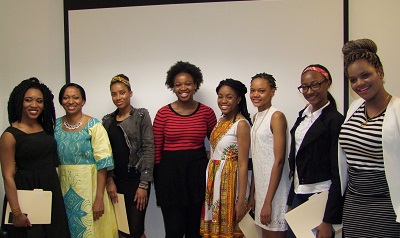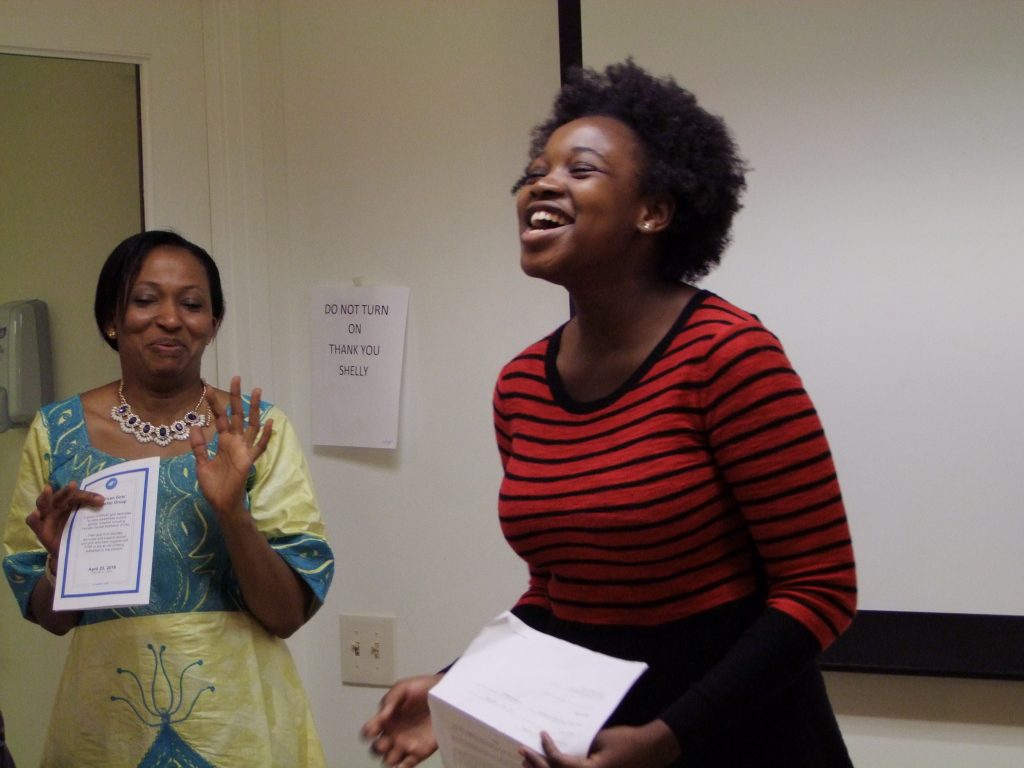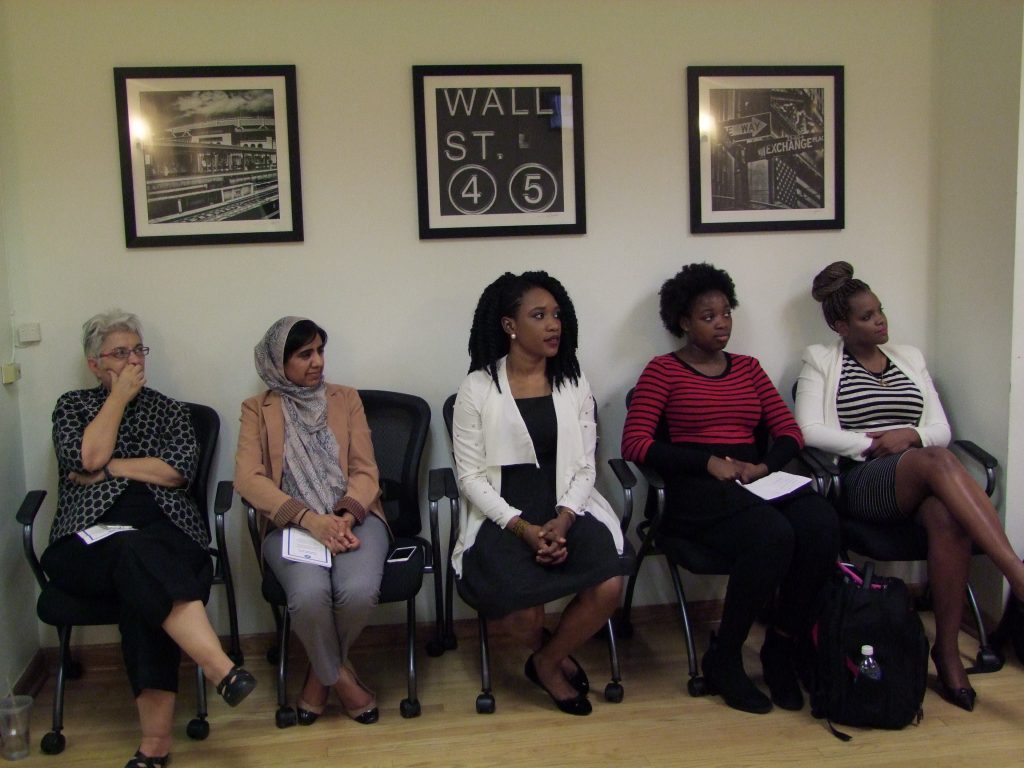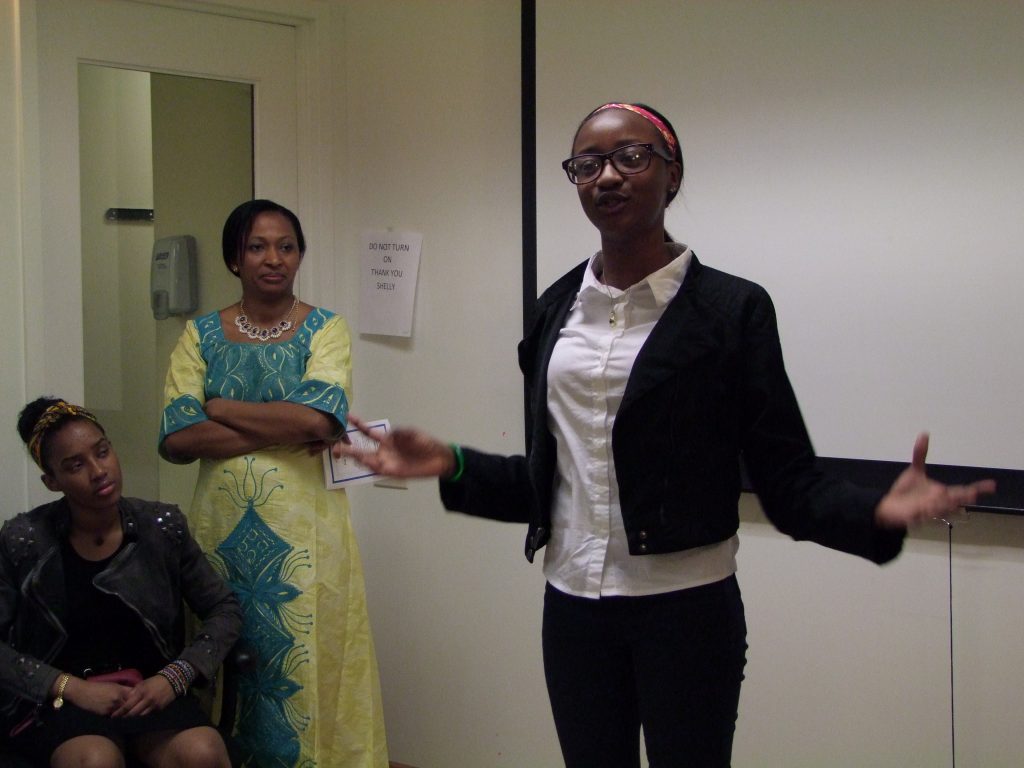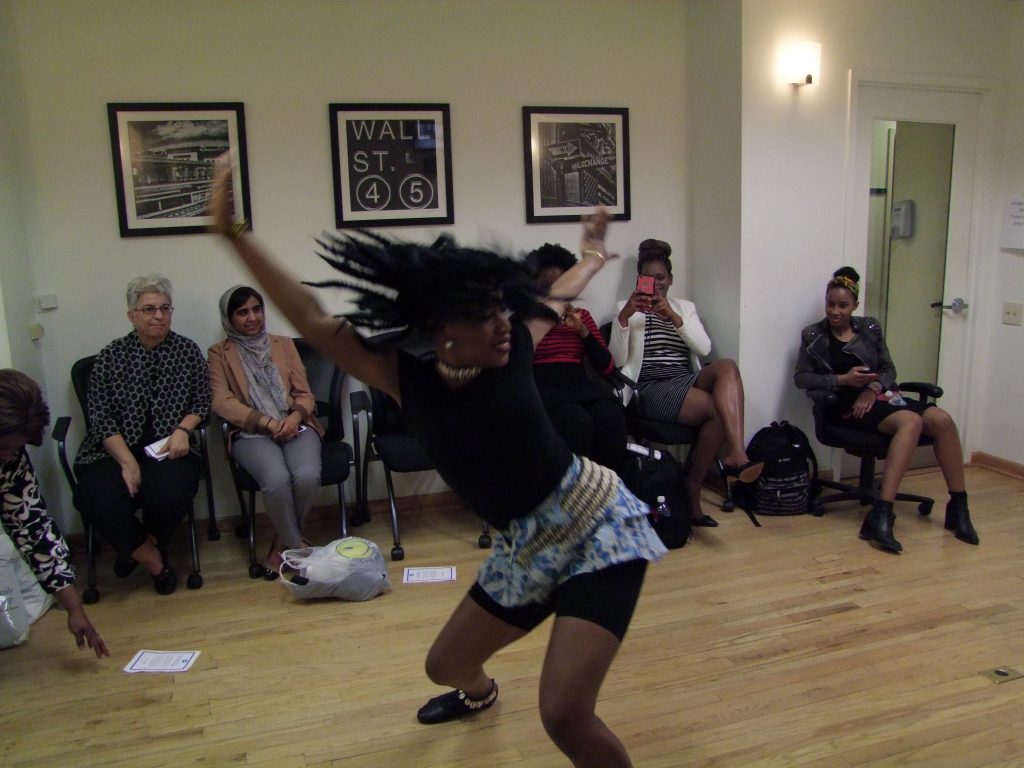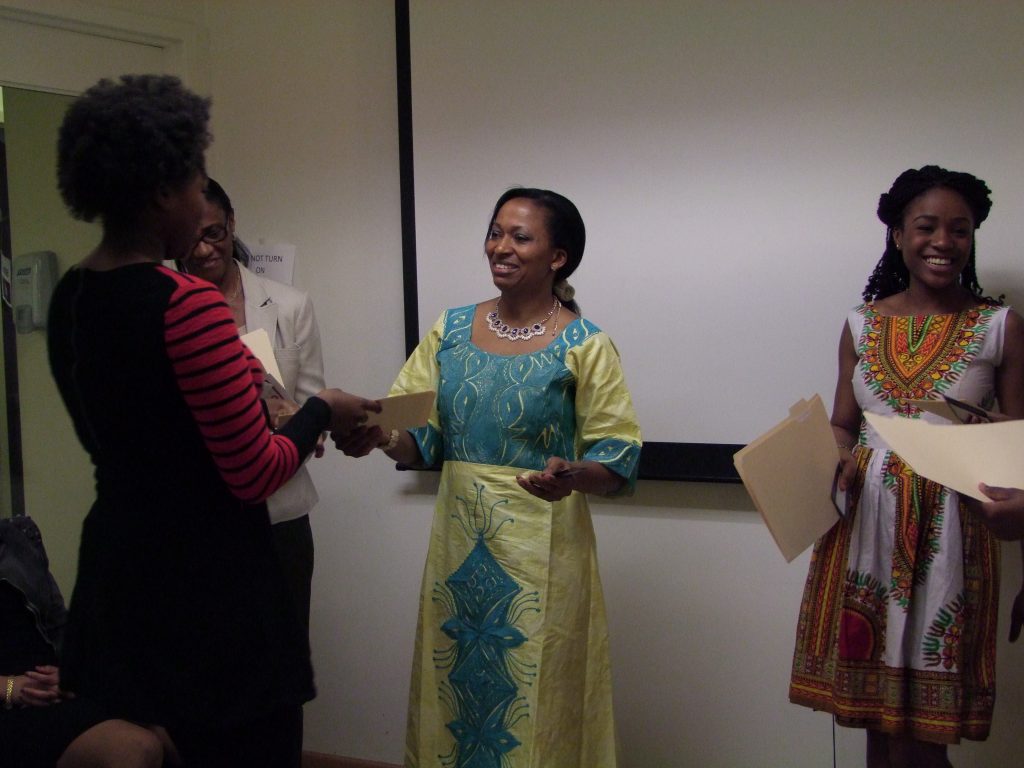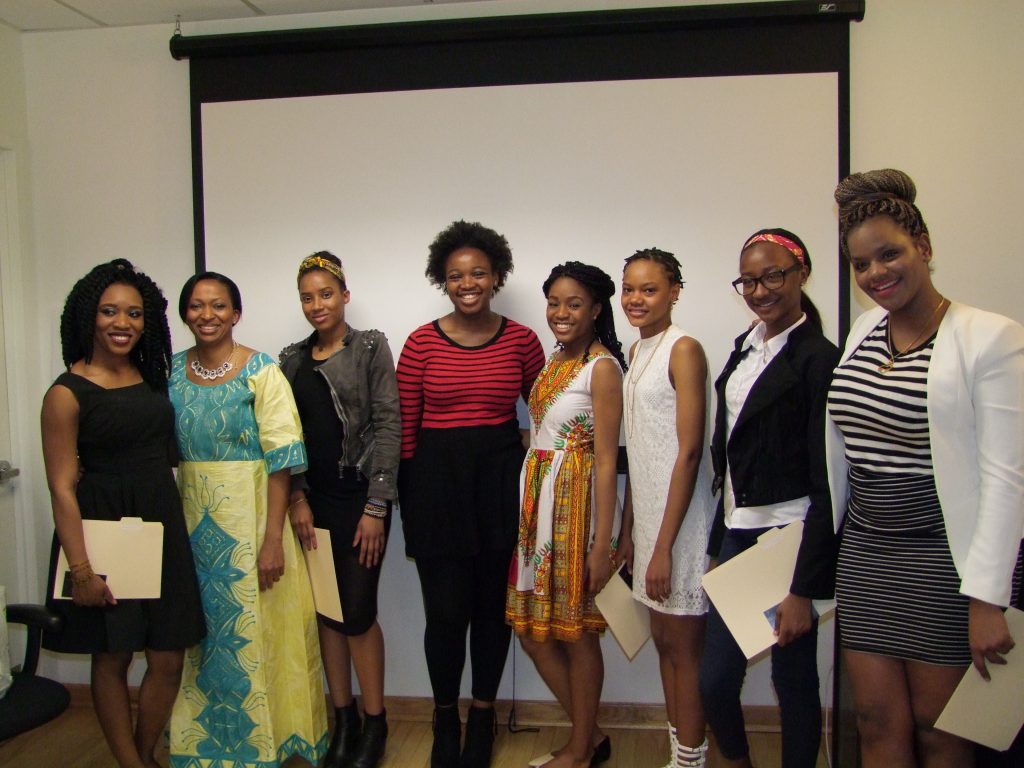“I’m willing to go out and speak. Usually I’m nervous when I speak, but you have all inspired me,” says Fatoumata, standing proudly before a room packed with peers, advocates and survivors.
“I know we as a group can make change when we go at it together.”
Fatoumata is a graduate of Sanctuary’s inaugural African Girls’ Leadership Group, a group that engages young African girls in advocating to end Female Genital Mutilation (FGM) in their communities.
Eight young women and teenage girls graduated during a ceremony last week, where Fatoumata and others spoke. All of the graduates have parents who immigrated from Africa, or were themselves born in Africa, with four different West African countries represented among the group.
Growing advocates from the community
The African Girls’ Leadership Group was founded by Sanctuary counselor Mariama Diallo, who was born in Guinea, West Africa. In Guinea, Mariama says, more than 93% of women undergo FGM.
In 2004, Mariama came to the United States, and began working at Sanctuary, where she did outreach among US-born girls in African communities in New York. “I was shocked to realize that FGM was happening here,” says Mariama.
Mariama has long been an advocate to end FGM in the US. But in recent years, as the children of her clients at Sanctuary grew up and learned about their mothers’ experiences, Mariama started to wonder how she could engage these bright young women in her advocacy.
After all, says Mariama, “the people who are most closely connected to an issue are the best to speak out against the issue – and this issue disproportionately impacts young African girls.”
Learning to make people listen
Over the course of three months, the girls gathered weekly to discuss their shared experiences of growing up in the US, but remaining closely tied to the traditions and culture of their or their parents’ home countries.
Everything was on the table, from the anxiety of awaiting college acceptance to the challenge of speaking to a respected and beloved male family member about why FGM is wrong.
Each week, guest speakers trained the girls in a new area of advocacy, including public speaking, using media, and legal aspects. “My favorite day was when we spoke with the Senior Trial Attorney from the Justice Department,” says Adama, age 16.
“I learned how to approach people about FGM effectively,” she adds. “You can’t immediately confront everyone with the brutal realities of FGM – you have to take different approaches to be the most effective and get people to listen.”
Carrying the message to the community
Aisha is 18, and about to graduate high school.
Despite her busy schedule, she found time to join the African Girls’ Leadership Group and was inspired to take action.
“When I was young, my mother wanted to ensure my sister and me never had to undergo FGM. She came to Sanctuary for help,” recounts Aisha.
“Today, even though most if the kids in my high school are from West Africa, I don’t think they are very educated about the issue of FGM. I’m planning to create a documentary that shares the stories of FGM survivors. FGM is such a traumatizing event, when someone speaks about it you can see it in their eyes. Words alone aren’t enough – I think video is a much more effective way to really show people what FGM is.”
Aisha is looking forward to attending Bryn Mawr next year, where she’ll study computer science. This summer, she’ll be working and getting ready for school – but she still wants to dedicate time to her advocacy.
“Being part of this group has really helped me to think outside the box about advocacy,” she says. “What keeps me going is knowing that this isn’t just for me, but could make a difference for someone else.”
Setting goals, making change
The African Girls’ Leadership Group doesn’t end with graduation. While some girls will be moving on to college, others are still in high school and are excited to push their agenda forward while growing the group to include other girls.
They’ve also created a list of goals for the future. The advocates hope to have a meeting with the New York City Mayor’s Office this summer, to talk about their idea for a city-wide ad campaign calling attention to FGM.
They want the opportunity to attend the UN Commission on the Status of Women in 2017, and are willing to participate in and speak at related events and panels.
They also want to do more outreach directly within their communities. The advocates think holding a free hair-braiding event at a local salon would be a great opportunity to reach mothers and families.
While braiding their daughters’ hair, the advocates could speak with the mothers about the dangers of FGM – and perhaps prevent yet another girl from undergoing the dangerous procedure.
“I’d like to see the group grow so we can inspire more girls, from all different places, to take part,” says Adama.
Scroll down to view more photos from the graduation!
